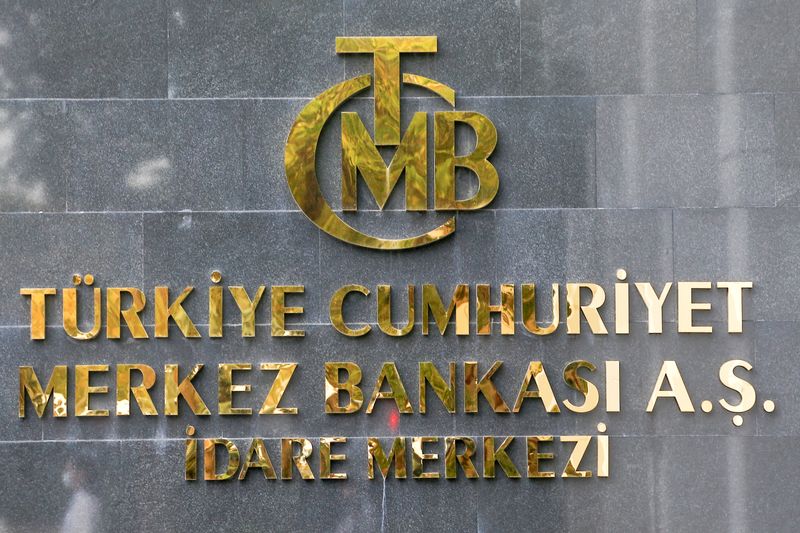Intel stock extends gains after report of possible U.S. government stake
(Bloomberg) -- Turkey’s central bank cut its key interest rate for a fourth consecutive month on Thursday in support of President Recep Tayyip Erdogan’s unorthodox monetary policy, despite a worsening inflation outlook and the lira hitting a series of record lows in recent months.
The Monetary Policy Committee reduced its one-week repo rate by 100 basis points to 14%, in line with the median estimate in a Bloomberg poll of 22 economists. All but one analyst saw Governor Sahap Kavcioglu cutting rates, with the dissenter expecting the central bank to hold.
The bank has now lowered the benchmark by 500 basis points since September, a period when most of counterparts were mulling or rolling out increases to tame a spike in price pressures. The cuts drove down the lira, which weakened past 15 per dollar for the first time on Thursday as investors anticipated another rate reduction. The currency’s lost about half its value this year.
Erdogan’s distaste for higher borrowing costs has been linked to Islamic proscriptions on usury. In his view, producers have to pass on the interest they pay to customers, so they raise prices.
He fired Kavcioglu’s three immediate predecessors for raising rates to tame inflation, and stepped up calls for cheaper borrowing to boost economic growth as his popularity fell amid the pandemic. Prices continued spiraling, with annual consumer inflation accelerating to 21.3% in November.
The president has attacked what he brands the flow of fickle “hot money” -- speculative foreign inflows into Turkish securities -- attracted by high interest rates and a strong lira. According to his economic model, cheaper borrowing will boost manufacturing and create jobs while inflation eventually stabilizes. This week Finance Minister Nureddin Nebati said Turkey’s determined to not raise interest rates.
The recent rate reductions sent real yields deeper into negative territory as consumer inflation climbed. Inflation expectations for the next 12 months surged to 21.39% from 15.61%, according to the central bank’s December survey of market participants.
The central bank is expected to publish its main framework of monetary and exchange rate policy for 2022 before the end of the year. The statistics agency will publish December inflation data on Jan. 3.
©2021 Bloomberg L.P.
